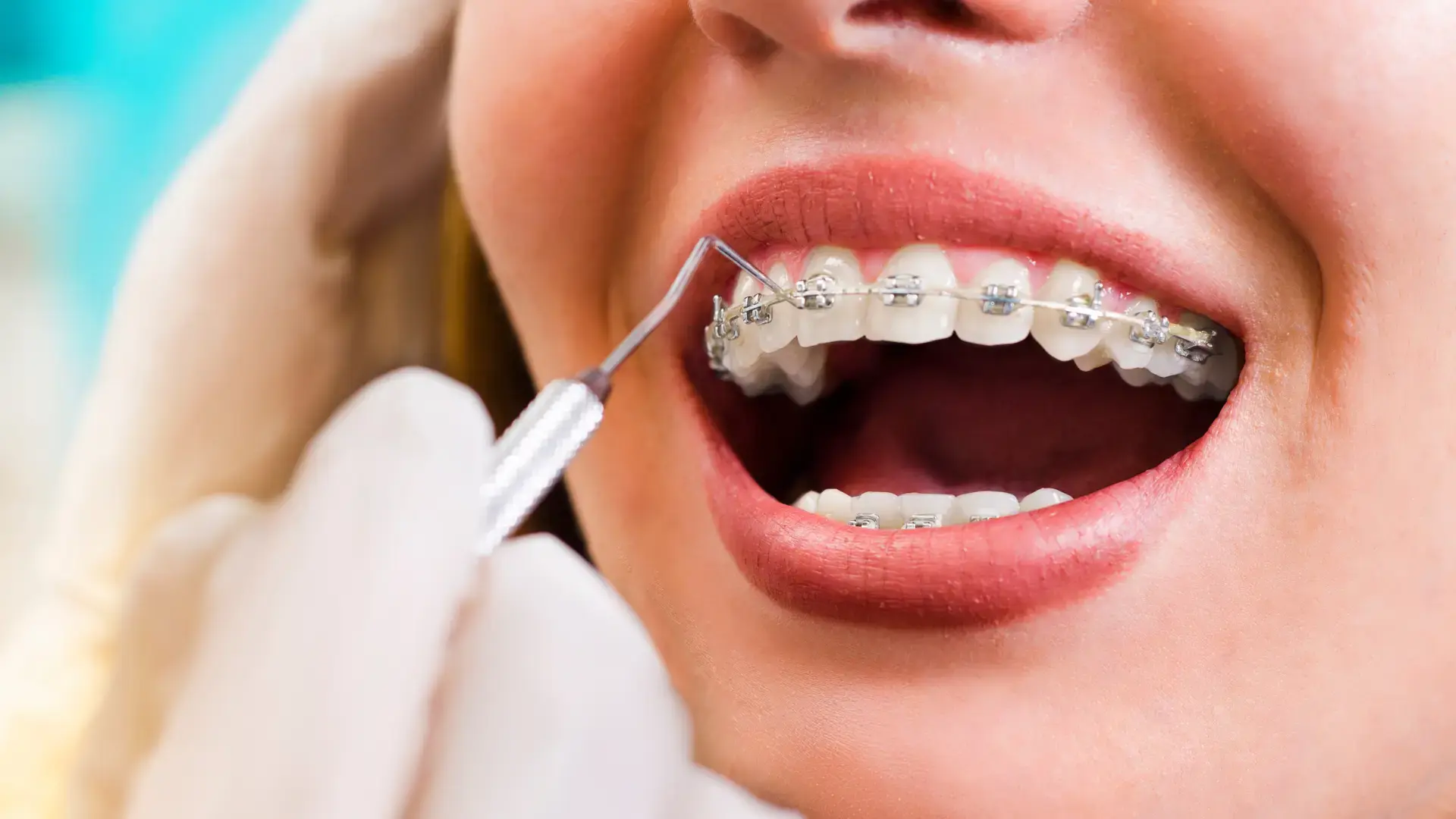The Importance of Oral Health and Its Connection to Systemic Disorders

Summarize with AI
Oral health is a crucial yet often overlooked component of overall well-being. Far from being isolated to the mouth, the state of one’s oral hygiene can have far-reaching effects on the entire body. Poor dental care not only leads to cavities and bad breath but can also contribute to a range of serious systemic health issues.
Gum disease, or periodontitis, is a prime example of how oral health problems can escalate. This condition, characterized by inflammation and infection of the gums, has been linked to cardiovascular disease, diabetes, respiratory infections, and even certain cancers. What’s worse, research suggests connections between oral bacteria and conditions such as rheumatoid arthritis and complications during pregnancy.
Therefore, understanding the connection between periodontal disease and systemic health and maintaining good oral hygiene isn’t just about preserving a bright smile – it’s an essential practice for safeguarding overall health and preventing potentially life-threatening systemic illnesses.
Impact of Systemic Diseases on General Health and Quality of Life
Oral diseases, particularly gum disease, can have significant negative effects on overall health and well-being. The mouth serves as a gateway to the body, and when oral health is compromised, it can lead to various systemic illnesses and issues, including:
- Cardiovascular problems: Bacteria from gum infections can enter the bloodstream, potentially causing inflammation in blood vessels and increasing the risk of heart disease and stroke.
- Diabetes complications: Gum disease can make it harder to control blood sugar levels, exacerbating diabetes symptoms and complications.
- Respiratory issues: Oral bacteria can be aspirated into the lungs, potentially causing or worsening respiratory conditions like pneumonia.
- Pregnancy complications: Periodontal disease has been associated with premature birth and low birth weight.
- Cognitive decline: Some studies suggest a link between poor oral health and an increased risk of Alzheimer’s disease and dementia.
- Weakened immune system: Chronic oral infections can strain the immune system, making the body more susceptible to other illnesses.
Predictably, these health impacts can significantly reduce one’s quality of life by causing pain, discomfort, and embarrassment. They may also lead to difficulties in eating, speaking, and socializing, potentially resulting in nutritional deficiencies, social isolation, and mental health issues like depression and anxiety.
What Are Systemic Diseases? A Look at the Types of Systemic Illnesses Associated with Poor Oral Care
Many know that poor oral hygiene can lead to periodontal disease and systemic health issues. However, few may know exactly the types of systemic illnesses that can occur or the specific connection between gum disease and systemic health.
Therefore, these are some of the most common systemic diseases a person should be aware of that can result from poor oral hygiene.
Diabetes and Poor Oral Health
Diabetes is a chronic metabolic disorder characterized by high blood sugar levels. It occurs when the body either can’t produce enough insulin (Type 1) or can’t effectively use the insulin it produces (Type 2).
While diabetes isn’t directly caused by poor oral hygiene, there’s a bidirectional relationship between diabetes and poor oral health:
- Gum disease can worsen diabetes:
- Chronic inflammation from gum disease can increase insulin resistance.
- This makes it harder for the body to control blood sugar levels.
- Poorly controlled blood sugar can lead to more severe diabetic complications.
- Diabetes can exacerbate gum disease:
- High blood sugar levels can weaken the immune system.
- This makes it harder for the body to fight off oral infections.
- Diabetes can also damage blood vessels, reducing blood flow to the gums.
- Shared risk factors:
- Both conditions share risk factors like poor diet and smoking.
- This can create a cycle where one condition worsens the other.
Cardiovascular Diseases and Oral Health
Cardiovascular diseases (CVDs) are a group of disorders affecting the heart and blood vessels. Conditions such as coronary artery disease, heart failure, arrhythmias, and stroke are categorized as cardiovascular diseases.
These diseases are often characterized by the buildup of plaque in arteries (atherosclerosis), which can lead to reduced blood flow and potentially life-threatening events like heart attacks or strokes.
Perhaps surprisingly, poor oral hygiene can lead to cardiovascular diseases via several mechanisms:
- Bacterial invasion: Bacteria from one’s gum infections can actually enter the bloodstream and attach to the fatty plaques in the arteries, causing further growth
- Systemic inflammation: Chronic gum diseases triggers and inflammatory response in the body, damaging blood vessels and promoting antherosclerosis.
- Immune response: The body’s immune reaction to oral bacteria can actually affect the cardiovascular system. This can potentially lead to the formation of blood clots or further damage to blood vessels.
- Shared risk factors: Poor diet, smoking, and other lifestyle factors that contribute to poor oral health also increase CVD risk.
Respiratory Disease From Poor Oral Hygiene
Respiratory diseases are conditions that affect the airways and other structures of the lungs. These include ailments such as pneumonia, chronic obstructive pulmonary disease (COPD), bronchitis, and asthma.
If a person has poor dental hygiene, this can lead to respiratory disease in a number of ways:
- Aspiration of oral bacteria: Bacteria from the mouth can be inhaled into the lungs. This can lead to infections or exacerbate existing respiratory conditions.
- Inflammatory response: Gum disease causes inflammation in the mouth, and this inflammation may spread, affecting the lungs and airways.
- Weakened immune system: Chronic oral infections can strain the immune system, making it harder for the body to fight off respiratory pathogens.
- Enzyme alteration: Oral bacteria from poor hygiene can alter the enzymes in saliva. This alteration can promote the adhesion of harmful bacteria in the lungs.
- Exacerbation of existing conditions: In people with conditions like COPD, poor oral health can worsen symptoms and increase the frequency of exacerbations.
Bacteremia and Endocarditis From Oral Diseases
Bacteremia is the presence of bacteria in the bloodstream. If one has poor oral hygiene, this increases the number of harmful bacteria in the mouth, raising the risk of bactermia. While it can be temporary and harmless in some cases, persistent or severe bacteremia can lead to more serious complications.
Endocarditis, on the other hand, is an infection of the inner lining of the heart chambers and valves (endocardium). It occurs when bacteria or other germs from another part of the body, such as the mouth, spread through the bloodstream and attach to damaged areas in the heart.
Why Oral-Systemic Health Matters
Maintaining good oral health not only prevents periodontal disease but also reduces systemic inflammation, protects cardiovascular health, aids in diabetes management, lowers the risk of respiratory infections, and prevents serious infections and systemic disorders.
Further, having good oral hygiene habits improves nutritional intake, enhances quality of life, and offers economic benefits by reducing healthcare costs over a lifetime. This is why regular brushing, flossing, and dental check-ups are vital for overall health and contribute to a longer, healthier life.
Prevent Systemic Disorders Today with Gentle Dental
If you’ve encountered periodontal disease and systemic health issues as a result of poor oral hygiene, you’re not alone. Hope and help is available.Take back control of your oral health and prevent oral diseases by partnering with Gentle periodontic specialists Today today. Use our online directory to find a Gentle Dental practice near you.


